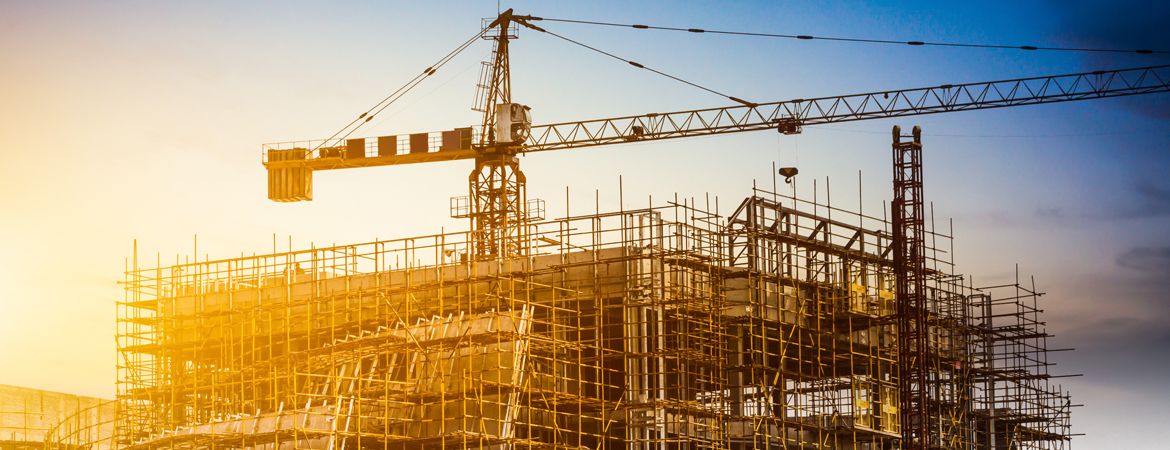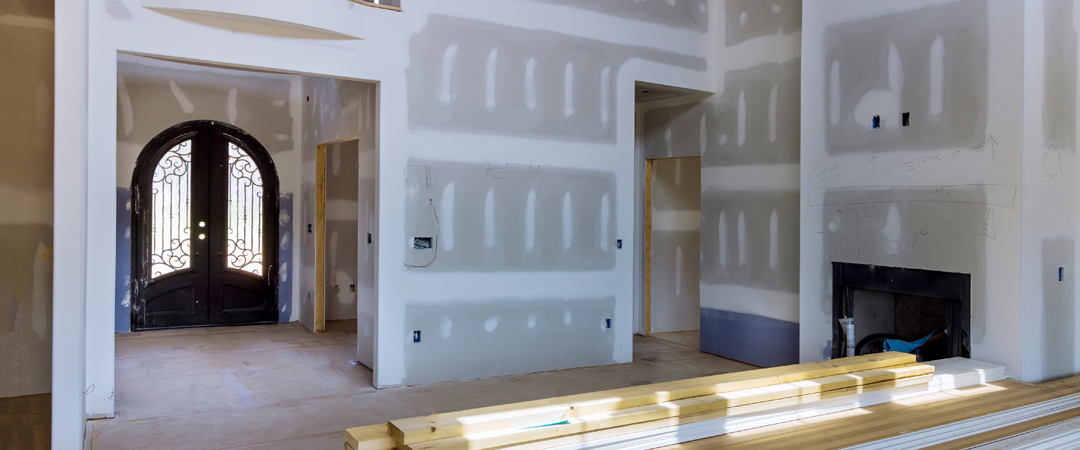
Are you embarking on a construction project but feeling overwhelmed with the wide array of construction materials available? Choosing the right construction materials is crucial to the success of your project, as they can impact its durability, performance, and aesthetic appeal. But with so many options to consider, where do you even begin?
In this step-by-step guide, we will walk you through the process of selecting the right construction materials for your project. Whether you’re building a new home, renovating an existing space, or working on a commercial project, we’ve got you covered.
We’ll start by assessing your project goals and requirements, helping you determine the right materials based on factors like budget, location, and climate. From there, we’ll explore different types of materials available in the market, discussing their benefits, drawbacks, and suitability for various applications. We’ll also provide guidance on important factors to consider, such as sustainability, maintenance, and durability.
By the end of this guide, you’ll have the knowledge and confidence to make informed decisions when it comes to choosing the right construction materials for your project. Let’s get started on creating a solid foundation for your construction endeavors.
Importance of choosing the right construction materials
The choice of construction materials plays a pivotal role in the overall success of your project. Selecting the right materials can ensure the durability and longevity of your structure, while the wrong materials can lead to costly repairs and maintenance down the line. Additionally, the right materials can enhance the aesthetic appeal of your project, making it visually appealing and attractive to potential buyers or tenants.
When choosing construction materials, it’s important to consider factors such as the intended use of the structure, the climate and environmental conditions it will be subjected to, and your budget. Each of these factors will influence the type of materials you should choose to ensure optimal performance and longevity.
Factors to consider when choosing construction materials
Before diving into the different types of construction materials available, it’s essential to assess your project’s specific goals and requirements. This will help you determine the right materials based on factors like budget, location, and climate.
Budget
Your budget is a crucial factor in selecting construction materials. Determine how much you are willing to spend on materials and factor in any additional costs for installation or maintenance. It’s important to strike a balance between quality and cost-effectiveness to ensure you get the best value for your money.
Location and Climate
The location of your project plays a significant role in material selection. Consider the local climate and environmental conditions, such as humidity, temperature fluctuations, and exposure to natural elements. Materials that are suitable for one climate may not perform well in another. For example, in coastal areas with high humidity, corrosion-resistant materials such as stainless steel or fiber cement may be more suitable.
Project Requirements
Consider the specific requirements of your project, such as load-bearing capabilities, fire resistance, insulation properties, and soundproofing. Different materials have varying strengths and properties, so it’s important to select materials that meet your project’s specific needs.
Understanding the different types of construction materials
Once you have assessed your project’s goals and requirements, it’s time to explore the different types of construction materials available. Here are some of the most common materials used in construction:
Concrete
Concrete is a versatile and cost-effective material used in a wide range of construction projects. It offers excellent durability, strength, and fire resistance. Concrete can be molded into various shapes and sizes, making it suitable for both structural and decorative applications.
Steel
Steel is known for its high strength-to-weight ratio, making it an ideal choice for large structures and buildings that require structural integrity. It offers excellent resistance to fire, corrosion, and pests. Steel can be used in various forms, including beams, columns, and reinforcement bars.
Wood
Wood is a popular choice for residential construction due to its natural beauty and versatility. It is renewable, biodegradable, and offers good insulation properties. However, wood is susceptible to rot, pests, and fire, so proper treatment and maintenance are essential to ensure its longevity.
Brick and Masonry
Brick and masonry materials, such as stone and concrete blocks, offer excellent durability and fire resistance. They are commonly used in the construction of walls, foundations, and facades. Brick and masonry materials provide a timeless and classic aesthetic appeal.
Sustainable Materials
With increasing awareness of environmental issues, sustainable construction materials are gaining popularity. These materials are eco-friendly, energy-efficient, and have a low carbon footprint. Examples include recycled materials, bamboo, straw bales, and rammed earth.

Assessing the durability and lifespan of materials
Durability is a crucial consideration when selecting construction materials. The durability of a material refers to its ability to withstand various forces, such as weather, wear and tear, and physical stress, without significant deterioration.
To assess the durability of a material, consider its resistance to factors such as moisture, temperature fluctuations, UV radiation, and chemical exposure. Look for materials that are known for their long lifespan and require minimal maintenance.
Evaluating the cost-effectiveness of materials
While it’s important to consider the upfront cost of materials, it’s equally important to evaluate the long-term cost-effectiveness. Some materials may have a higher initial cost but lower maintenance and replacement costs over time, resulting in overall savings.
Consider factors such as the material’s lifespan, maintenance requirements, energy efficiency, and potential for future repairs or replacements. It’s also worth considering the potential resale value or rental income generated by a structure built with high-quality materials.
Environmental considerations in material selection
Sustainability is a growing concern in the construction industry. When selecting materials, it’s important to consider their environmental impact. Look for materials that are renewable, recyclable, and have a low carbon footprint. Avoid materials that contain hazardous substances or require excessive energy consumption during manufacturing.
Additionally, consider the overall energy efficiency of the materials. Choose materials that offer good insulation properties, reducing the need for artificial heating or cooling systems.
Working with a construction materials supplier or contractor
Choosing the right construction materials can be a complex process. Consider working with a reputable construction materials supplier or contractor who has experience in selecting and sourcing materials for various projects. They can provide expert advice and guidance, ensuring that you choose the most suitable materials for your project.
A reliable supplier or contractor will have access to a wide range of materials and can help you navigate through different options, considering your project’s specific requirements and budget constraints.
Steps to take when selecting construction materials
To ensure a smooth and successful material selection process, follow these steps:
- Assess your project goals, requirements, and budget.
- Research and understand the different types of construction materials available.
- Consider the suitability of materials based on factors such as location, climate, and project requirements.
- Evaluate the durability, lifespan, and cost-effectiveness of materials.
- Take into account environmental considerations and opt for sustainable materials when possible.
- Seek expert advice from a construction materials supplier or contractor.
- Compare prices, quality, and availability of materials from different suppliers.
- Make an informed decision based on your research, expert advice, and specific project needs.
By following these steps, you can confidently select the right construction materials that will meet your project’s requirements and ensure its long-term success.
Common mistakes to avoid in material selection
When choosing construction materials, it’s important to avoid common mistakes that can lead to costly errors or subpar results. Here are some mistakes to watch out for:
- Focusing solely on upfront costs and disregarding long-term durability and maintenance.
- Neglecting to consider the specific requirements of your project, such as load-bearing capabilities or fire resistance.
- Overlooking the local climate and environmental conditions that may impact the performance of materials.
- Forgetting to factor in the potential resale value or rental income generated by a structure built with high-quality materials.
- Failing to seek expert advice from a construction materials supplier or contractor.
By being mindful of these common mistakes, you can avoid unnecessary expenses and ensure that your project is built to last.
Conclusion: Making informed decisions for your construction project
Choosing the right construction materials is a critical step in ensuring the success of your project. By assessing your project goals, considering factors such as location, climate, and budget, and understanding the different types of materials available, you can make informed decisions that will result in a durable, high-performing, and visually appealing structure.
Remember to evaluate the durability and lifespan of materials, consider their cost-effectiveness and environmental impact, and seek expert advice when needed. By following these guidelines and avoiding common mistakes, you can create a solid foundation for your construction endeavors and enjoy the long-term benefits of choosing the right materials.

